Posts Tagged ‘Livelihood’ (15 found)
Hidden Strengths, Hidden Struggles: Women’s testimonies from southeast Myanmar
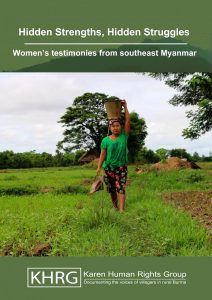 This report presents women’s testimonies in respect of various issues during the reporting period of January 2012 to March 2016. These issues include the dangers posed to women by the presence of armed actors in communities; the effects of land confiscation and development projects on women’s livelihoods; women’s access to healthcare and education; the continued occurrence of gender-based violence; and the harms caused by landmines; forced labour; arbitrary taxation and extortion […]
This report presents women’s testimonies in respect of various issues during the reporting period of January 2012 to March 2016. These issues include the dangers posed to women by the presence of armed actors in communities; the effects of land confiscation and development projects on women’s livelihoods; women’s access to healthcare and education; the continued occurrence of gender-based violence; and the harms caused by landmines; forced labour; arbitrary taxation and extortion […]
Southeast Asia Opium Survey 2014 – Lao PDR, Myanmar
The roots of the opium production problem in Southeast Asia go back to the 19th century. The region is home to the “Golden Triangle”, an area long associated with opium and heroin production, located where the borders of Myanmar, Lao People’s Democratic Republic (Lao PDR) and Thailand converge along the Mekong River. Twenty years ago, the Golden Triangle was the largest heroin‐producing area in the world, supplying the region’s own demand as well as exporting its surplus to North‐east Asia, Europe and the United States of America. In the 1990s and early 2000s, national and regional efforts succeeded in reducing both opium production and trade in the region, though they subsequently increased.
• • •A Foreseeable Disaster in Burma: Forced Displacement in the Thilawa Special Economic Zone
Recent liberalization of some governmental policies in Burma (officially the Union of Myanmar) has led to the lifting of a number of bilateral sanctions and increases in foreign aid and investment. Both governments and corporations are entering into partnerships with Burmese companies to undertake major development projects, including building special economic zones (SEZ), developing hydroelectric dams, signing concession agreements for mining operations, and building pipelines. Despite their potential to create opportunities for economic advancement, such development projects are causing widespread forced displacement throughout the country, undermining the human rights of the people living in affected areas.
Forced displacement threatens people on every continent. Environmental degradation, conflict, the race for scarce resources, development projects, and land grabs have caused a significant number of these illegal displacements. People living in marginalized communities, including ethnic minorities and indigenous groups, are particularly vulnerable to forced displacement. […]
• • •Forced Displacement Leaves Burmese Families Living in Substandard Conditions, with Higher Rates of Hunger and Sickness
The Burmese government violated international standards when forcibly displacing families from the Thilawa Special Economic Zone (SEZ) by threatening many residents with court appearances and imprisonment, giving them inadequate compensation for land lost, and failing to provide training or other means of income to those who lost their jobs, according to a new report by Physicians for Human Rights (PHR). […]
• • •New National Land Use Policy Must Reflect the Concerns of those Affected
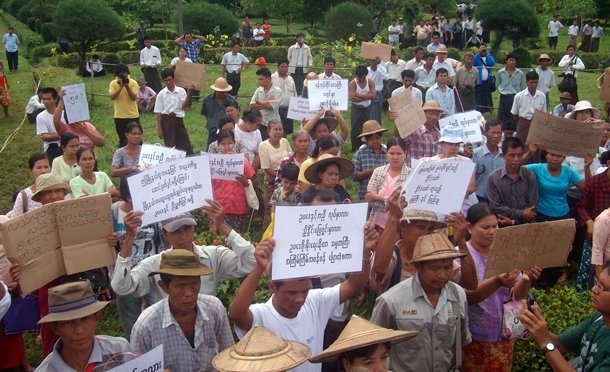 The Burma Government released its draft land use policy document and opened it up for consultations with the public. Despite this positive sign, the time for consultations is inadequate with no proper mechanism or space created for the meaningful participation of affected communities in order for their concerns to be reflected in the draft. The draft document itself has been heavily criticized for serving to further empower investors over small scale farmers.
The Burma Government released its draft land use policy document and opened it up for consultations with the public. Despite this positive sign, the time for consultations is inadequate with no proper mechanism or space created for the meaningful participation of affected communities in order for their concerns to be reflected in the draft. The draft document itself has been heavily criticized for serving to further empower investors over small scale farmers.
Since the beginning of the reform process in 2011, land grabbing, a practice that the previous military regime engaged in regularly, has hit new heights as a flurry of investors seek opportunities in previously untapped markets and the Burma Government liberalizes the economy. A prime example of this is the Dawei Special Economic Zone (SEZ) Project, a joint Thailand–Burma Government initiative that is seeking private investment to create one of the largest industrial zones in Asia. A report released by Dawei Development Association on 21 October 2014 highlights how 20-36 villages will be negatively affected. Concerns iterated by the local communities show that they have “lost farmlands and natural resources that are vital to their livelihoods, without prior information.” Furthermore “there was no meaningful consultation, and a deeply flawed compensation process.”
Land grabbing is often done with protection from the military, or by the military itself, for factories, infrastructure projects, mono-crop plantations, or military bases, and as with the Dawei SEZ case, usually without adequate or indeed, any compensation. It is a nationwide problem, both in ethnic areas, as documented by the Human Rights Foundation of Monland and Karen Human Rights Group, while in central Burma and delta areas, land grabbing is common place. Given that around 70% of the population of Burma is engaged in agriculture, and it is agricultural lands that are most often confiscated, it is one of the most pressing issues for Burma today […]
• • •“ဘိန္းႏြံတြင္းက ငိုရႈိက္သံ” အစီရင္ခံစာ
၁၈၈၆ တြင္ အထက္ျမန္မာျပည္ကို အဂၤလိပ္တို႔ သိမ္းပိုက္ၿပီးေနာက္ တရုတ္-ျမန္မာနယ္စပ္ တေလ်ာက္တြင္ အေရွ႕ေတာင္အာရွ၌ ဘိန္းစိုက္ပ်ဳိးထုတ္လုပ္မႈ စတင္ ထြန္းကား ရာေဒသ ျဖစ္လာခဲ့ သည္။ ျမန္မာႏိုင္ငံသည္ ၁၉၄၈ ခုႏွစ္တြင္ အဂၤလိပ္တို႔ ထံမွ လြတ္လပ္ေရး ရရွိခဲ့ေသာ္လည္း ရွမ္းျပည္နယ္မွ ဘိန္းစိုက္ပ်ဳိး ထုတ္လုပ္ မႈသည္ အနာဂတ္တြင္ ျပႆနာမ်ားျဖစ္ထြန္းမႈ ပိုမိုႀကီးထြား လာေစသည့္ မ်ဳိးေစ့မ်ားကို ခ်ထားၿပီး ျဖစ္ေနသည္။ […]
• • •Tanitharyi Divison Villagers Call For Development Projects To Stop As Govt Grants Hundred Of Thousands of Acres To Business Interests
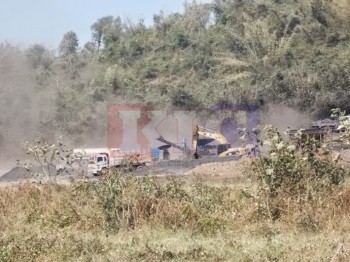 Representatives from civil society groups, religious leaders and villages in the Tanitharyi Division have sent a petition letter to both the government’s Division Chief Minister and the Karen National Union’s Megui/Tavoy District chairperson to try to get development projects stopped that villagers claim are health hazards.
Representatives from civil society groups, religious leaders and villages in the Tanitharyi Division have sent a petition letter to both the government’s Division Chief Minister and the Karen National Union’s Megui/Tavoy District chairperson to try to get development projects stopped that villagers claim are health hazards.
The petition sent on October 13, was signed by 125 representatives from 46 villages, members of civil society organizations such as Tarkapaw, Community Sustainable And Livelihood Development,Trip-Net, Dawei Development Association and religious leaders in the region […]
• •Villagers form Petition to Oppose Rangoon City Project
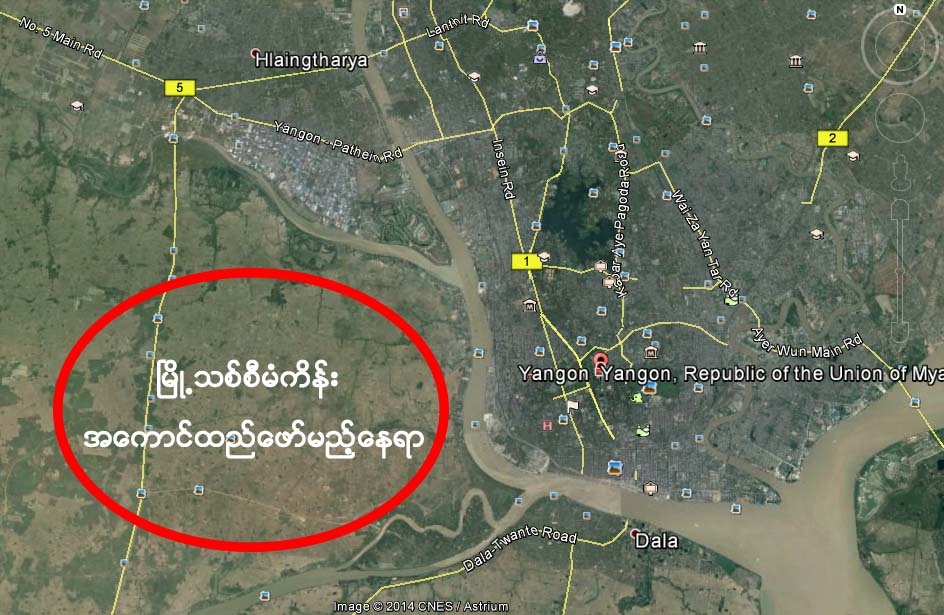 A group of rural villagers living west of Rangoon said they are forming a petition to protest plans to build an extensive residential and commercial development on 30,000 acres (121 sq.km) of land in their area.
A group of rural villagers living west of Rangoon said they are forming a petition to protest plans to build an extensive residential and commercial development on 30,000 acres (121 sq.km) of land in their area.
Local residents of Ton Tay [Twante] Township told DVB that they will send their petition to the Burmese president.
“They will destroy the paddy fields and we will have rice shortages,” said local farmer Aung Pe. “Many of the people here know only about farming. They have no other livelihood. I think that some rich people are buying out the farmers […]
• •What Refugees Say…
Between March‐April this year, focus group discussions were held with temporary returnees to SE Burma/ Myanmar from all 9 refugee camps along the Thailand‐Burma/ Myanmar border. The aim was to gain a snapshot of individual perspectives and concerns on current conditions on the ground, rather than conducting a formal survey representational of the whole refugee caseload.
The consultations focused on the conditions in the areas they returned to, the changes they and residents in those areas had detected since recent political and military shifts in the country, and their perceived current barriers to return.
The participants were identified by Section Leaders, with criteria that they must have returned to SE Burma/ Myanmar since the ceasefires were brokered, be adults, and that there should be some gender equity amongst them. In total, 85 temporary returnees participated in the consultations, with 35% being female. Over 100 others, comprising senior community leaders and CBO staff were also engaged through the process, although the main findings in this report only reflect the perspectives of those who had recently returned to their country of origin […]
• • •

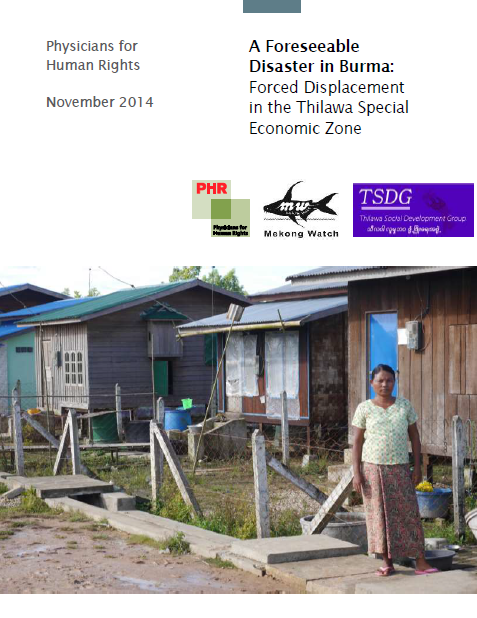
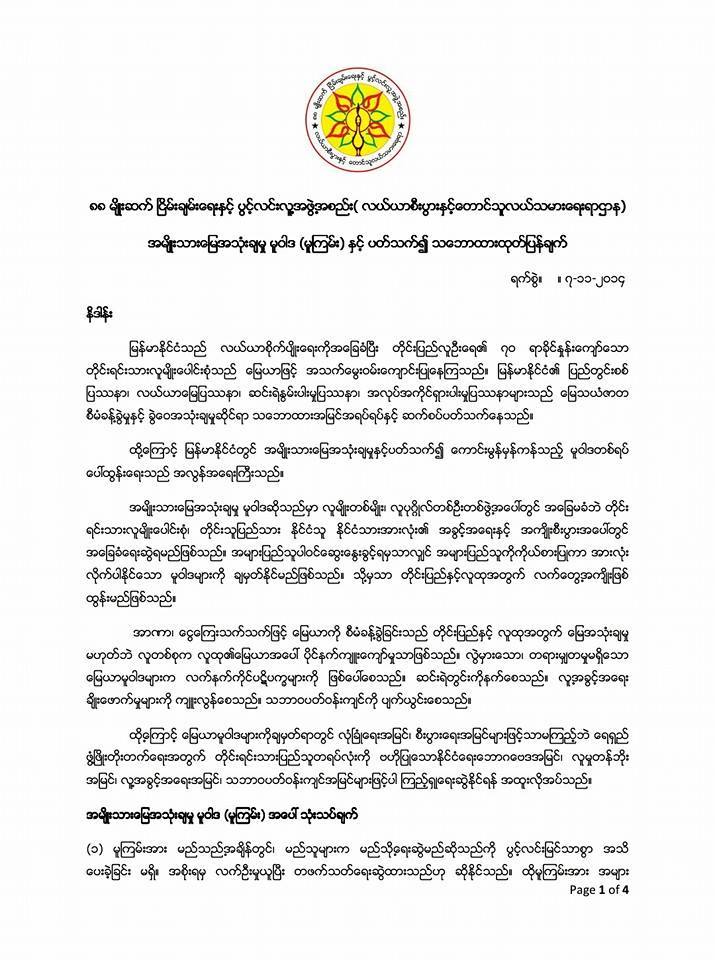
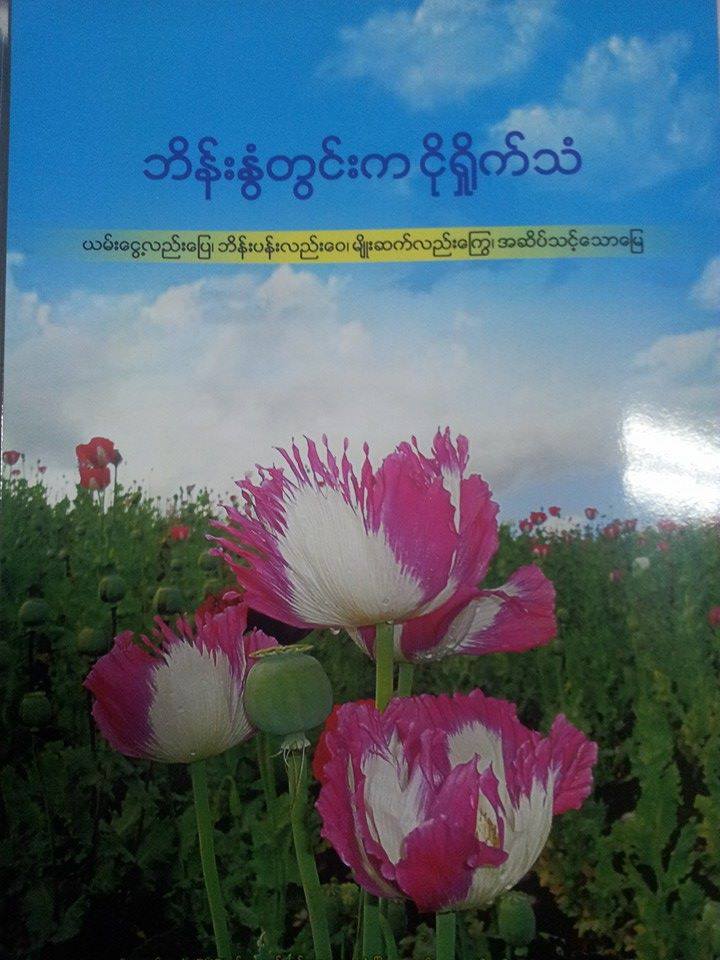
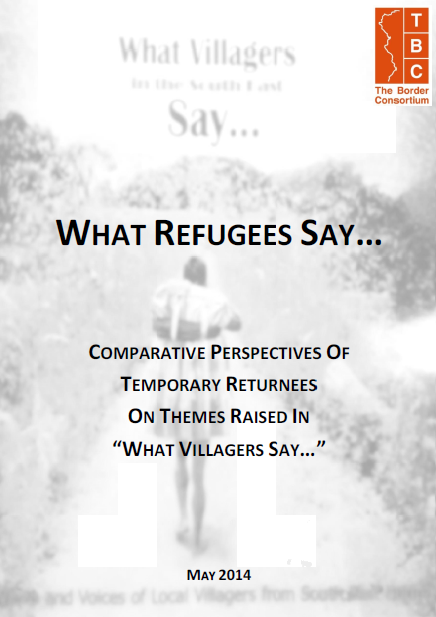








 All posts
All posts